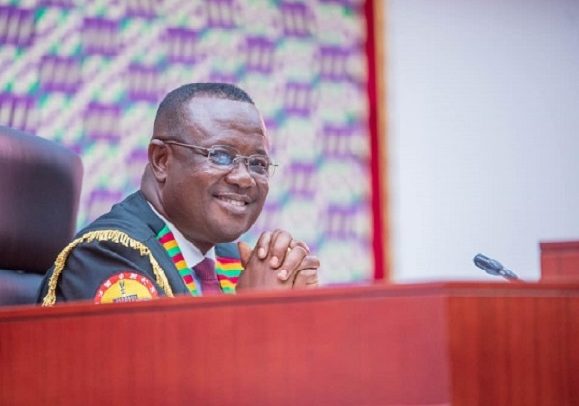Joseph Osei-Owusu
First Deputy Speaker of Parliament, Joseph Osei-Owusu, has stated that the country is getting the worst performance of a parliament since the Fourth Republic after control in the House seeped from the front bench towards the opposition and back benches.
“We have decided to do politics rather than business. This equal number of Parliament has brought the worst in MPs. I will repeat again. This 8th Parliament has made the least number of laws,” he stated in an interview with the media in Parliament.
His remarks came after the House adjourned proceedings for the umpteenth time due to a lack of quorum, which was raised by opposition NDC MPs during the Consideration Stage of the Ghana Commission for UNESCO Bill 2022.
The First Deputy Speaker, popularly known as Joe Wise, said, “We have not cooperated as we did in the past. In my 15 years in Parliament, there was not one consideration time that we had more than 30 people in the chamber.”
“But we have cooperated over the years because we understand the challenges. That business called ‘consideration’ is very boring and it is very technical. Only a few people who got used to it and learned over the years were often in the chamber.
“When I joined it they used to call it ‘delete and insert.’ When it gets to ‘delete and insert’ many people leave the chamber. But we never used the absence of our colleagues in the chamber to defeat the purpose and substance of the work,” Mr. Osei-Owusu said.
He continued, “The backbenchers look at things differently from the rest of us. So it is good for them. Even when their leaders agree to do it, always people from the backbench will come to raise these issues, not the leaders.”
According to him, what it means is that indeed at this time in the Parliament of Ghana, leaders don’t have control; the backbenchers have control.
“The number of backbenches and the orientation of the backbench you bring in could determine what you get. Let me also say again, Ghanaians should give each side they decide to give the majority a large majority.
“When Parliament got this close, I said that it would make cooperation better. Unfortunately, I was wrong. It has made cooperation worse. It’s brought out the worst in each of us and we are getting worse performance of a parliament,” he lamented.
With no clear cut majority in the House, the governing party is struggling to get the cooperation of the Minority members, who are employing all tools to obstruct public business after they accused the government of persecuting some of their colleagues.
However, the First Deputy Speaker, who is also the New Patriotic Party (NPP) MP for Bekwai, believes certain contradictions on the issue of quorum cry out for resolution in the face of registration and attendance, intimating that MPs have questions to answer for misleading people on matters of passing consequence.
According to him, the sense of fractured reality is particularly acute at this moment in parliamentary history on the issue of quorum and attendance.
“What for me is the issue of today is when we say quorum, can we count Members of Parliament who are not in the chamber but are in the precinct of Parliament doing other business or not.
“That is the issue which I think Hon. Boamah’s intervention raises. Because at the time Second Deputy Speaker was forced to bring proceedings to a close, the number recorded to be present was not up to 40.
“But look at the Votes and Proceedings that have been brought before us. No corrections have been effected to them. We have 201 recorded as present,” Mr. Osei-Owusu said.
He quizzed, “So upon what basis did proceedings abate? Can we justify that?” and added, “I think that is the matter we should be blunt. In the past, in the 7th Parliament, I had often insisted that quorum meant present in the chamber.”
“In this 8th Parliament, I recall sitting here and facing Mr. Speaker, and he gave the interpretation that when the person is within the precinct of Parliament, he should be marked present.
“That is the challenge. We have to take one definition and work with it. Otherwise, if we are working with being present in the chamber, this report will not be accepted as a correct reflection of the Votes and Proceedings.
“Because at the time proceedings were abated, in the chamber, there were less than 40 of us. How did it rise to 201?” he asked rhetorically.
“These are matters I think are germane and we should consider them. I am hearing for the first time today that Mr. Speaker has further ruled that if you are not in the chamber you are absent. I didn’t know that.
“We should be clear in our definition when a member is said to be present. Of course, when it comes to taking a decision, we may defer every other matter; stop every other proceedings and invite members to come in the chamber,” he said.
By Ernest Kofi Adu, Parliament House


